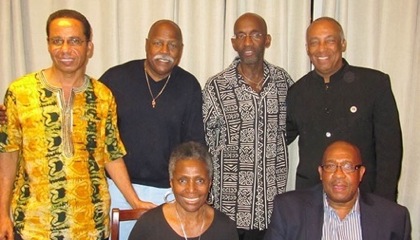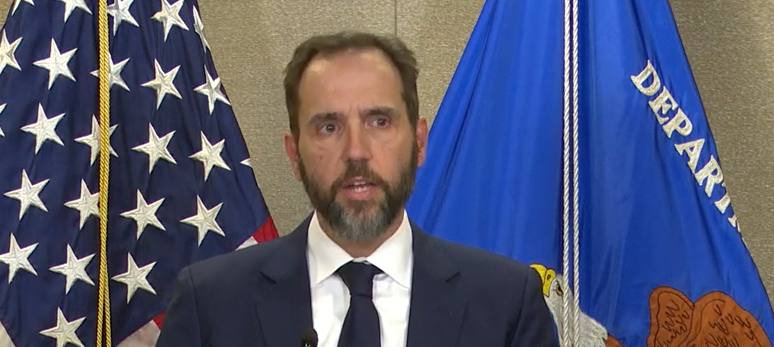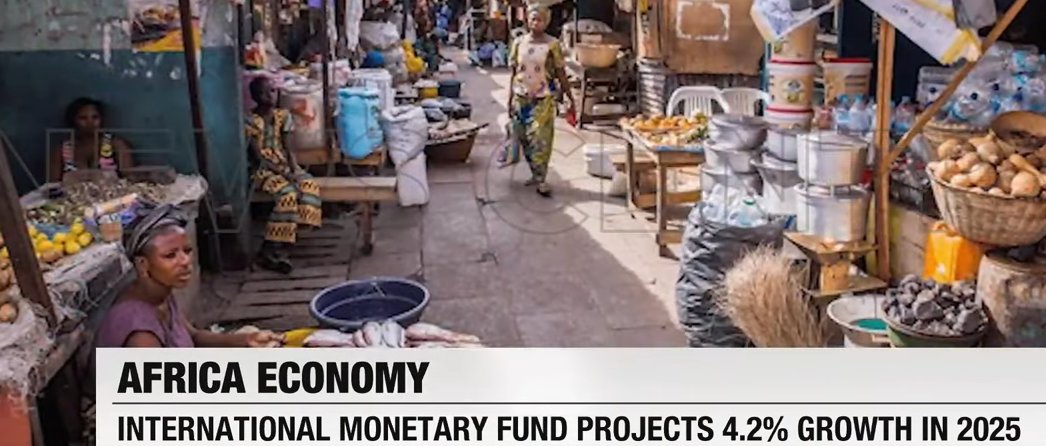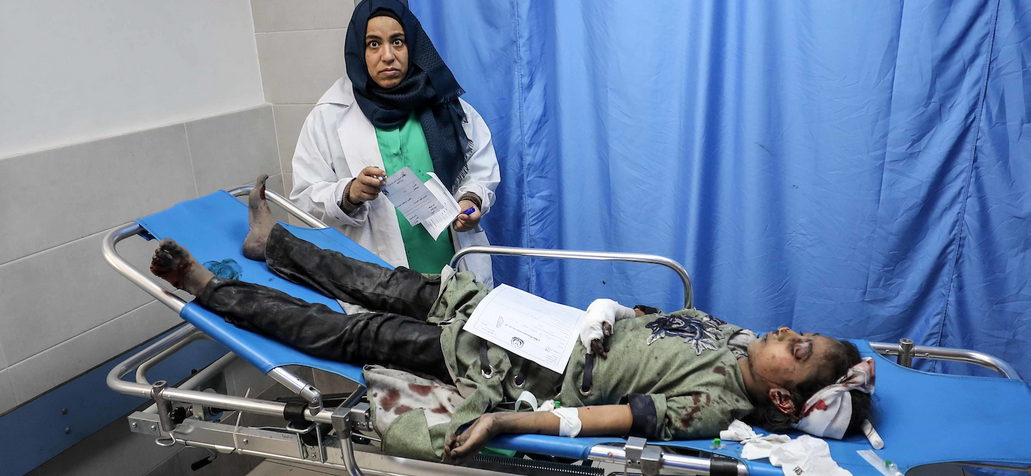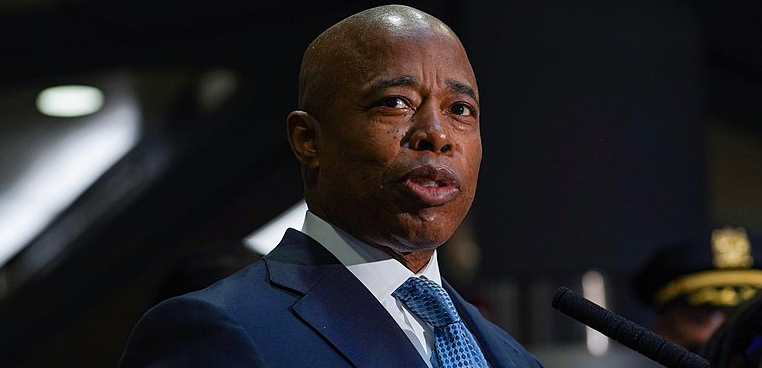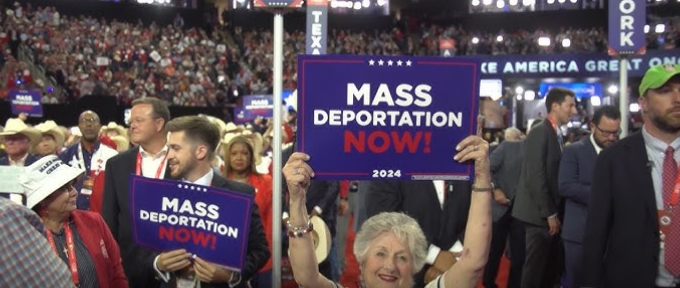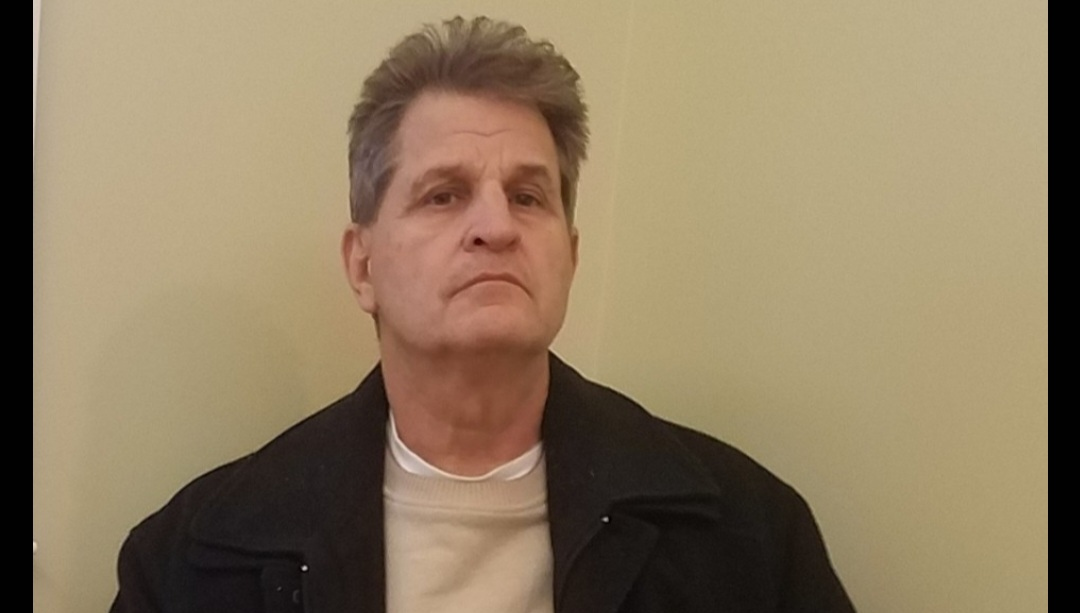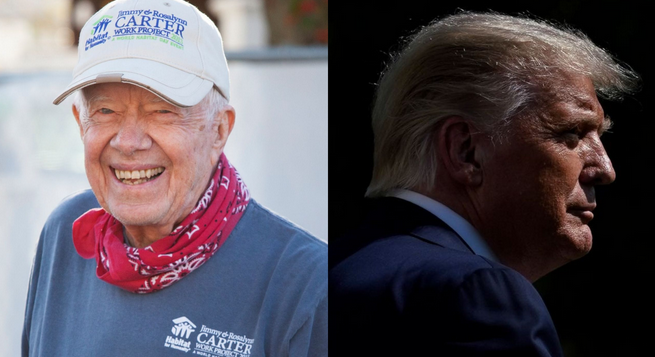Front: Viola Plummer and Cikiah Thomas. Back: David Comissiong, Omowale Clay, Roger Wareham, Charles Barron
[REPARATIONS]
The global Reparations Movement has been re-ignited by the Caribbean Community’s (CARICOM), including with a recent United Nation’s speech by a prime minister, a lawsuit against the United Kingdom and other events.
The 15 member regional bloc of nations established its Reparations Commission in July 2013 laying out the strategy for reparations for African enslavement and colonization, and genocide of the indigenous populations of the Caribbean against the governments of western Europe.
The December 12th Movement International Secretariat attended the CARICOM first Regional Reparations Conference held in St Vincent and the Grenadines in September and has begun to revitalize the reparations movement in the US.
Prime Minister Ralph Gonsalves addressed its Harlem report back during his NYC visit to the UN General Assembly. Moving forward, the International Secretariat sponsored a Pan African Reparations forum in Brooklyn last week featuring David Comissiong, Esq. of the Barbados Reparations Committee, Cikiah Thomas, of the Global African Congress of Canada, and Roger Wareham, Esq. of the December 12th Movement US Delegation.
The forum opened with the screening of a documentary of the historic United Nations World Conference against Racism [WCAR] in September 2001. The film “The Durban 400” focused on the WCAR Pan African front steeled by the Africa Group, Caribbean Group, United States based Durban 400 delegation led by the December 12th Movement and the National Black United Front, and many allied nations and non governmental organizations. On September 8, 2001, the “Durban Declaration and Programme of Action,” declared the Trans Atlantic Slave Trade and Slavery [TAST] as crimes against humanity and prescribed compensation to the descendants of its victims.
The intense internal struggles at the WCAR included: the break-away of the Caribbean Group of nations from the Group of Latin American and Caribbean nations [GRULAC] after the Latin Americans refused to declare the TAST as crimes against humanity; Israel’s attempt to make itself the WCAR target claiming antisemitism, and the United States dramatic dissent and walk out. Then three days after the WCAR ended, two planes crashed into the World Trade Center on September 11 and the international agenda suddenly changed to Bush’s “war on terror.”
David Comissiong of Barbados explained, “[But] the seeds had been planted, and we are seeing once again, in the year 2013, that this issue is coming to the fore with a vengeance. We decided at that meeting in St Vincent that we have to go forward with a three pronged strategy to secure reparations. We have to pursue legal remedies – in particular the World Court. We have to simultaneously pursue diplomatic strategies, that is we have to mobilize other governments around the world and utilize international diplomatic fora like the United Nations. Thirdly, we have to deploy political strategies – take it before the national parliaments and mobilize our national populations,” Comissiong concluded.
Cikiah Thomas, Chair of the Global African Congress in Canada stated, “The framework of a successful reparations movement came out of Durban. Many of us who went to Geneva [UN Human Rights Commission – Group of African Descendants] knew very little about each other. I remember Roger Wareham handing out something about the basis of reparations. There were 4 or 5 principles and I can assure you that all of the reparations activists and those who were not activist became active overnight.”
“I come from Canada, and Canada likes to pride itself [and has done so successfully] because of one thing; the fact that it played a part on the Underground Railroad. When African Americans from this country went up to Canada seeking their freedom. Canada has maximized that for what it’s worth, at every single opportunity. In fact, not only are they historical revisionists, but what they have done before the US walked out of WCAR, they used the Underground Railroad to remind the world how good they were because they had given the Africans freedom. Caribbean and some African countries were very sympathetic to Canada. But we have to be vigilant; remember [Haiti] President Aristide, what the US, France, and Canada did to use all the resources at their disposal to unseat Aristide.”
“Reparations activists have to come together like we did in Durban. This is not just about CARICOM. It is about African people all over the world. We can defeat the US and the west just like we did in Durban,” he said.
Roger Wareham, Esq., opened with the summation, “The demand for reparations – one war, one enemy, many fronts.’ Amilar Cabral said “Culture is a weapon.” It’s a weapon that an be used for you or against you. As Peter Tosh sang, “No matter where you are, if you are a Black man, you are an African.” They dropped us off in many places and we have different languages, but we are all African people. In order to make this reparations struggle successful we have to understand that. We will win. One enemy, many fronts. CARICOM has taken the point and it must energize us here.
He said, “In the UN Western Europe and Others Group [WEOG] including the US, Europe, Canada, Australia, New Zealand and Israel- with no geographical connection, have all politically united against us. They never wanted a WCAR and tried every step of the way, to dilute it and water it down. To this day they continue to fight against the Durban Declaration and Programme of Action.
We are united because all of us are descendants of victims of the slave trade, slavery and colonialism. There is not one African that can say that they are outside of that province. They owe us. Reparations is the key issue for Africans in the 21st century. It touches on every aspect of our lives [health, education, culture, politics]. As Walter Rodney said they underdeveloped us. It was a conscious decision by the west to develop their own nations through the trans atlantic slave trade, slavery, and colonialism.”
Wareham reminded everyone about the first National Reparations Rally in Washington DC in 2002, the reparations lawsuits against US corporations including Aetna, Fleet Bank and Union Pacific, and the Tulsa [Black Wall Street] descendants. “The law is always political. They change the rules, and we have to circumvent the false issue of US sovereign immunity. We must mobilize our people here into our own regional reparations committees.
“No matter where you are, if you are a Black man/woman you are due reparations. They stole us, they sold us, they owe us.” Wareham concluded.
